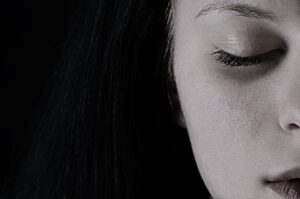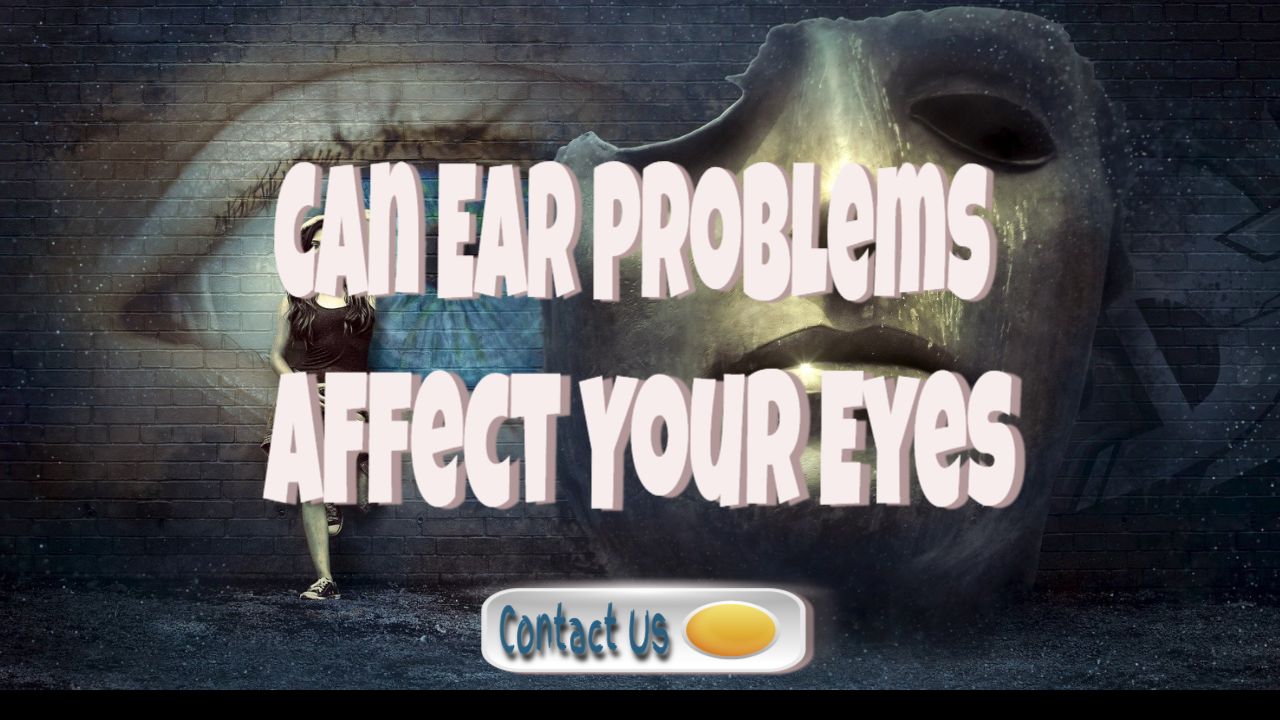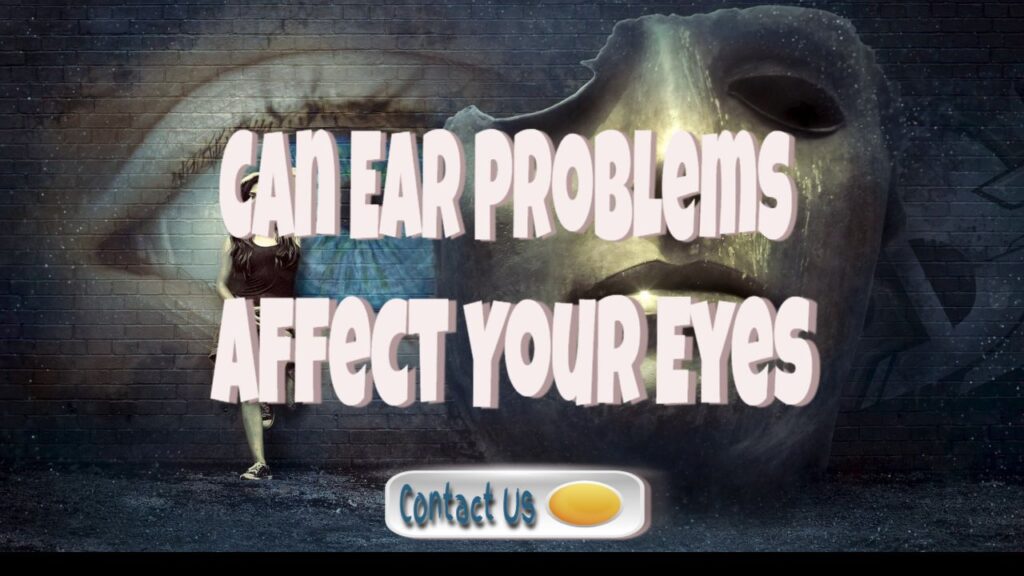On This Page
-
-
-
-
- Find a Vision Therapy Eye Doctor Near You
- Treating Eye & Ear Infections
- How stress can affect your eyes and ears
- Stress and your hearing
- My Ear Hurts! What Does This Mean?
- How can your ears affect your eyes?
- Learn More Learn More
- What symptoms might I get with a vestibular disorder?
- The fullness of the ear
- Inflammation of the Inner Ear
-
-
-
Find a Vision Therapy Eye Doctor Near You
Can Ear Problems Affect Your Eyes: Fortunately, it is not difficult to test vision for its effects on the vestibular and proprioceptive systems, but it requires a familiar clinician. A physiotherapy examination of the visual system includes multiple components, of which just one is an eye health check. The doctor also monitors the oculomotor function and focuses on how well the mind understands the visual stimuli and proceeds them. It is crucial to know whether the eyes can function in conjunction with the brain and other systems, as the visual system analyses data practically instantaneously.
During 30 years of ineffective treatment, our patient revealed her symptoms. She presented a situation that was quite intricate. Prolotherapy therapies are simple injections discussed and shown below. After eight treatments, these improvements have been noted—enhancement of the optic nerve. Last summer, I went to my doctor, and he told me that both my eyes (vision) were getting better at the same time (the mid-50s).
Treating Eye & Ear Infections
A modest dose of the chemicals may develop in the eye due to inflammation, for example. An infection may also occur if you scrape your cornea or if the eye gets damaged. Some types of eye infections can harm your eye quickly if left untreated. In persons wearing contact lenses, infections can be more serious. If you believe you may have an eye infection, wear your glasses instead of your contact lenses.
According to a National Children’s Hospital study, the bacteria responsible for mid-ear infections, conjunctivitis, and sinusitis protect each other from further immunosuppression. The study is also the first in the November edition of PLoS Pathogens to reveal a method of transport that bacteria make use of in their survival.
You should relax as much as possible to treat dizziness because when you lie down, the light feeling in your head should go away. In addition, you need to deal with your nasal problems if you experience vertigo. Never use ear candles to eliminate earwax if you treat sinus or ear disorders that induce dizziness in the house. These items are so harmful that in 2010 they were warned against their consumption by the Food and Drug Administration (FDA). The application of this methodology was supported by no scientific evidence to earwax removal or to aid in ear diseases and there was a risk of burns with this treatment.
Sometimes the mid and inner sections of our ears become infected either because the external ear has got deeper or because the bloodstream or the eustachian tube is spreading via the bacteria (a tube that connects the middle ear to the back of the nose). Symptoms in middle and inner ear infections may vary depending on precisely which portion of your ear is affected. Still, you can feel a headshake, a tilting of the eyes, reduced appetite, loosened appetites, squinting, a raised third eyelid, varying size for the pupil, abnormal eye movements, difficulty walking or imperfect hearing. Are you not sure which parts of your ear are affected?
How stress can affect your eyes and ears
Long-term stress can definitely have a negative impact on your ear health., causing diseases such as hearing loss and tinnitus. Reduced blood flow can damage your ears in the same way that it can impact your vision, and persistent stress plays a significant role in reducing blood flow. For example, when you are anxious, the increased adrenaline in your body can reduce or stop blood flow to your inner ear, harming or even destroying the microscopic hair cells in your ear. This can result in either gradual hearing loss over time or sudden hearing loss if the blood supply is cut off. On the other hand, suppose your hearing loss is a result of stress. In that case, it is often reversible: first, reduce stress to improve blood flow (easier said than done, but take a look at this handy NHS guide to stress management for some starting points), and then consider sound therapy to rehabilitate your hair cells.
If you’re dizzy, it’s because your brain hasn’t been able to combine information from all of your balance senses correctly. This could well be due to a problem with the brain or one of the balance senses. For example, vestibular illnesses (e.g., Ménière’s illness) damage the inner ear’s balancing organ. Because the organ of balance is malfunctioning, the brain becomes more reliant on information from your body’s eyes and other sensors. This increases your sensitivity to conditions that can cause dizziness, such as confusing settings and times of stress.
Blurred vision appears to be a side effect of a specific type of antidepressant: the tricyclic family. The most likely mechanism is that these medications inhibit the uptake of the neurotransmitter acetylcholine, which regulates the quantity of moisture in the eye by contracting the eye muscles. When the neurotransmitter fails to function correctly, the eyes dry out, resulting in impaired vision.
Autumn is hay fever season. Allergies can also be caused by pollen, grass, animal fur, and dust. Itchy and watery eyes, as well as a plugged nose, are the most typical symptoms. Is it possible for allergies to impact your ears? Yes, in a variety of ways.
Stress and your hearing
Tinnitus (ringing in the ears) treatment – such as sound therapy-minimises the contrast between tinnitus sounds and background noise, making The tinnitus sound less bothersome.
Hearing aids are one type of treatment for hearing loss.
Physiotherapy for balance issues
Secondary symptoms of Ménière’s disease, such as stress, worry, and depression, are treated.
If you are concerned about stress-related hearing loss, look for symptoms such as clogged ears, inability to hear specific frequencies, a feeling of pressure in the ears, hearing loss in one or both ears, sounds that appear further away than usual, or tinnitus.
Signals sent from the spinal cord and nerves from the brainstem to the brain are responsible for the body’s sense of hearing and balance. Meniere’s disease can occur if any of these areas are not functioning correctly. Therefore, we focus on ensuring that the top neck bones, particularly the c1 (atlas) and c2 (axis), are in the correct sequence at evoking spinal care. These bones were created to protect the brainstem, which is extremely sensitive. However, if they are misaligned due to a minor or significant accident, they can put the brainstem under stress and lead it to send inaccurate balance and hearing signals to the brain.
Tinnitus is prevalent, affecting around one in every ten persons in the United Kingdom. It is frequently reported as a “ringing in the ears,” as well as clicking, hissing, or buzzing, and some people experience music-like noises. Although tinnitus is an extraordinarily unpleasant and distracting ailment, it has not been thoroughly explored, yet one of the main reasons is stress. There are effective treatments available to assist you in managing the illness. Many hearing aids now include tinnitus treatment capabilities, and many individuals find that combining cognitive behavioural therapy and sound enrichment therapy can help them manage their tinnitus.
My Ear Hurts! What Does This Mean?
Is this sounding familiar “My ear hurts, but I’ve been to the doctor multiple times, begging for antibiotics, and he keeps telling me my ear is ok!”
This happens more frequently than you might expect. Many of my patients have expressed their dissatisfaction with this. They manifest with acute ear pain and pressure, eye pain or pressure, temple pain, and occasionally painful upper teeth. I mean, how could this not be some form of infection? You may have temporal tendinitis, according to the truth.
If pulling on your earlobe or pressing on the little flap that closes it hurts, you most likely have an outer ear infection. It is contracted when water trapped in your ear canal begins to develop germs. Your ear may get red, swell, become itching, and drip pus. It is not spreadable. To avoid it, keep your ears dry while swimming and afterwards. To treat the problem, your doctor will most likely prescribe antibiotic ear drops. Find out more about swimmer’s ear.
How can your ears affect your eyes?
Tension and cluster headaches are two types of headaches that can induce a sense of pressure behind the eyes. The most frequently suffered type of headache is a tension headache, affecting more than 80% of the population. Cluster headaches are a form of headache that is exceedingly intense and comes and goes. You may experience cluster headaches for a few days or weeks, followed by a period of no headaches for months or years.
If you do not treat an ear infection, you may have respiratory problems. Your ear infection may not bother you, but your breathing issues undoubtedly do. As a result, you must understand how your ear infection can impair your ability to breathe. The eyes, ears, and nose are all interconnected.
Our eyes, ears, and nose all have interconnected functions. If one of them has difficulty, the others suffer as well. For example, if you have a cold and have a runny nose, your eyes will wet, and your hearing will suffer.
Rubella could infect a pregnant woman’s unborn child if she acquires the virus. This type of infection is especially harmful during the first four months of pregnancy because it can harm the developing organs. Although anybody area can be damaged, the eyes and ears appear to be more prone to rubella infection. Babies born with congenital rubella syndrome have a wide range of characteristics. Some of them are.
- Slipping or stumbling regularly (clumsiness)
- Dizziness (a sudden sensation of spinning or whirling that causes you to feel as though you are moving when sitting or standing)
- Uncertainty, dizziness, or disorientation are all symptoms of disorientation.
- Lightheadedness or dizziness
- Problems with vision, such as bouncing eyesight or blurriness (called oscillopsia [ah-sih-lop-see-uh])
- Difficulty standing up or walking upstairs without falling.
Learn More Learn More
You may not react at all when your body comes into contact with foreign material. However, if your nose is running, your throat hurts, or your eyes scratch, you may be experiencing an allergic response. Continue reading to find out how allergens might damage the health of your ears, nose, and throat.
Vestibular rehabilitation is a type of “brain retraining.” It is also known as vestibular rehabilitation training or vrt. It entails a unique workout routine that teaches your brain to adapt to the aberrant impulses transmitted by your ears. Despite the dizziness and vertigo, you continue to move around during the vrt. Your brain should gradually learn to rely on signals from your other bodies, such as your eyes and legs, rather than the perplexing messages from your inner ear. As a result, your brain reduces dizziness and helps you maintain your balance by depending on other signals.
Meniere’s illness is an inner ear illness that produces vertigo. The sensation of spinning or losing your equilibrium is referred to as vertigo. This condition can also cause hearing loss, ear pressure, and tinnitus (a ringing, droning or buzzing sound in the ear). These programmes last anywhere from 20 minutes to four hours. Hearing and balance tests are used to identify Meniere’s illness. An audiogram, videonystagmography, and computerised dynamic posturography are among the procedures we give to identify Meniere’s illness. To learn more about each of the exams, click on it.
When the body detects an illness, one of the first lines of defence is the release of immunological molecules known as host-derived antimicrobial peptides (amps) to attack and kill bacteria. On the other hand, Bacteria have learned to resist the amps through a variety of defences, such as remodelling their outer membrane surface to make it less porous. One such bacterium is Nontypeable Haemophilus influenzae (nthi). Nthi colonises people’ upper respiratory tracts, usually without causing harm. However, nthi can convert from a non-harmful bacterium into a pathogen that causes pink eye, sinusitis, middle ear infections, and cystic fibrosis problems.

What symptoms might I get with a vestibular disorder?
Vestibular dysfunction is caused by vestibular system impairment induced by illness., viral infection, high dosages of some antibiotics, stroke, deterioration of the inner ear’s balance function, injuries to the head (such as concussions, traumatic brain injury, whiplash), or other unknown causes (s). This causes a variety of symptoms that impact many parts of daily living. Vestibular diseases can cause one or more of these symptoms when the system is compromised.
To retain your balance, your brain uses messages from your eyes, ears (especially the inner ear, which contains the vestibular system), and other areas of your body (e.g., muscles, joints, skin). A balanced condition might harm your life. It can, for example, put you at risk of falling. You may also have annoying symptoms such as dizziness and restlessness. Dizziness can relate to various symptoms, such as lightheadedness and vertigo (a sensation of moving or turning).
Unfortunately, the inner ear is extremely sensitive and easily damaged by concussions, microtrauma to the brain, and whiplash injuries. Many people have vestibular system injury or problems without realising it. Poor balance, dizziness, and a modest sensitivity to motion sickness are all symptoms of vestibular disorders. When the inner ear canals are injured, the vestibular system’s input is not adequately linked with information from the eyes and body. This results in neurological confusion and the symptoms that follow.
Vestibular rehabilitation for visual vertigo
What exactly is visual vertigo? Professor Bronstein characterised visual vertigo in 1995 as a “syndrome in which symptoms are induced or worsened under settings of extensive visual conflict or high visual stimulation.” What causes vertigo in the eyes? After an acute peripheral vestibular (inner ear, organ of balance) disease, symptoms may appear a few days or weeks later. This would be felt as rotating vertigo, which is also known as vertigo. Visual issues can also result in vertigo or decreased sensory information from the skin, ligaments, muscles, tendons, or joints of the body.
The fullness of the ear
The symptoms of the following conditions may resemble those of BPPV. Therefore, comparisons can help in the differential diagnosis. Ménière’s disease is a condition that causes recurrent vertigo, unilateral hearing loss, and ringing in the affected ear (tinnitus). It is accompanied by swelling (dilatation) of the membranous labyrinth in the ear (endolymphatic hydrops). Meniere’s disease vertigo bouts are abrupt and usually last 2-6 hours. The sensation characterises vertigo in that the room or things are whirling around the sufferer. Vertigo usually goes away gradually.
Ménière’s illness, a rare disorder that affects the inner ear, can occasionally induce severe vertigo. This can result in dizziness and hearing loss, tinnitus, and ringing in the ears (a feeling of pressure in the ear). If you have Ménière’s disease, you may experience dizzy spells that continue for hours or days. The most prevalent side effects of the episodes are nausea and vomiting. Although the origin is unknown, the symptoms can be managed with diet and medicine. In some circumstances, additional therapy in the form of surgery may be required.
Ménière’s illness is an inner ear ailment characterised by fluctuating hearing loss, tinnitus, dizziness, and ear fullness or pressure. It is caused by an excess of fluid in the inner ear. There is no cure for Ménière’s illness. However, numerous treatment options can help you manage your symptoms. So what are the underlying causes of Ménière’s disease?
Ménière’s disease has an unknown cause. However, it is assumed to be caused by a malfunction of the endolymph sac, which regulates the volume and pressure of fluid in the inner ear.
Meniere’s illness, named after the doctor who initially characterised it, arises when fluid builds up in the inner ear, causing vertigo bouts and ringing in the ears (tinnitus), hearing loss, or a feeling of fullness in the ear. Doctors are unsure what causes it, but hypotheses include blood flow issues, allergies or autoimmune reactions, infections, or heredity. Despite the fact that Meniere’s disease has no cure, therapies can effectively reduce symptoms. Medication, dietary and lifestyle modifications, and, in difficult situations, surgery can all assist.
Inflammation of the Inner Ear
Jaw discomfort near the ear on the left side implies that you have hurt your jaw or that there is some form of inflammation or infection of the jaw or the structures surrounding it.
A problem typically causes vertigo with the way the inner ear balances, but it can also be caused by issues in other sections of the brain. Vertigo can be caused by a variety of factors, including:
- BPPV (benign paroxysmal positional vertigo) occurs when certain head motions cause vertigo.
- Solid headaches characterise migraine.
- Labyrinthitis is an inner ear inflammation.
- Vestibular neuronitis is a condition in which the vestibular nerve becomes inflamed, which goes into the inner ear and delivers instructions to the brain that aid with balance control.
To begin, it is necessary to comprehend what constitutes the inner ear. The inner ear is in charge of hearing and balance. The semicircular canals, cochlea, and atria comprise it. These components are referred to together as the inner ear. Bacteria and viruses are capable of infecting it. When inflammation occurs, it may appear “infested.” Ear infections are more common in youngsters, and they usually resolve on their own. Adults are not always like this.
The labyrinth is the ear’s deepest chamber. It is divided into two parts:
First, the cochlea transports sound to the brain and is in charge of hearing.
The vestibular system is a sophisticated network of fluid-filled tubes that aids with balance.
Inflammation of the labyrinth can impair your hearing and sense of balance, resulting in labyrinthitis symptoms. The labyrinth frequently gets inflamed as a result of:
Labyrinthitis is more common in those with an autoimmune condition (where the immune system mistakenly attacks healthy tissue instead of fighting off infection). Your ears will be inspected for symptoms of inflammation and infection.
Hearing testing – if you have hearing loss, you are more likely to have labyrinthitis.
Your doctor will also examine your eyes. If they flash uncontrollably, it is usually a sign that your vestibular system (the body’s balance system) is malfunctioning.
We’ve heard that you’re experiencing ear pain. Do you want to know if you have an inner ear infection?
It is critical to recognise the symptoms of an ear infection so that you can receive treatment. They may sometimes leave on their own., but they might cause damage or hearing loss if they persist.
Water in the ear is rarely a concern. In most circumstances, one of the procedures indicated above will allow you to drain stuck liquids effortlessly. However, in other cases, such as if the trapped fluid has developed an ear infection, you should see a doctor. Other signs that you should see a doctor include.
The sternocleidomastoid muscle is a thick muscle that runs from just below the ear to the collarbone. Injuries to this muscle can result in jaw and ear pain and sinus pain, eye pressure, and other symptoms that may be misinterpreted as symptoms of a cold or infection. If a person has these symptoms but no injuries or other signs of infection, such as a fever or runny nose, a sternocleidomastoid injury could be to blame. A physical check by a doctor can rule out other causes, such as infections of the middle or inner ear.







Comments are closed